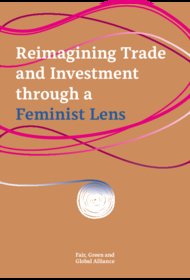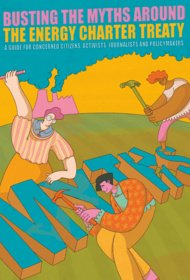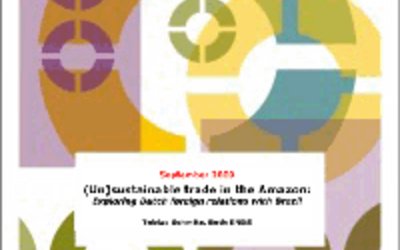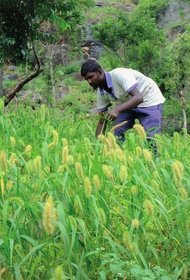-
Dossier
Trade agreements
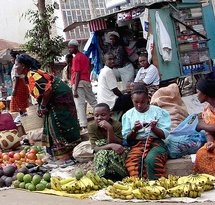
International trade agreements often have far-reaching consequences not only for the economy of a country, but also for people and the environment. It is primarily the most vulnerable groups who suffer most from these agreements.
-
Dossier
Investment treaties
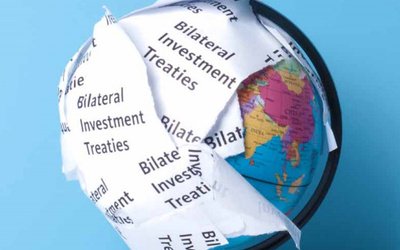
Investment treaties must be inclusive, sustainable and fair. That means that they must not put the interests of companies before those of people and their living environment.
-
Publication / 30 October 2023
-
Event / 22 February 2022, 16:00 - 17:30
Webinar and launch of new publication about EU-Mercosur
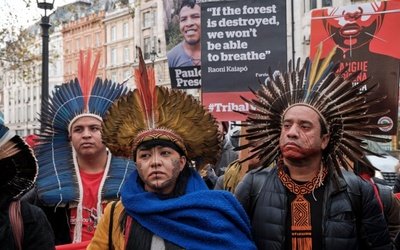
What is the EU-Mercosur association treaty and why is it controversial? What could be the implications of the treaty for people and their livelihoods both in EU and Mercosur countries? For more information about these and other issues, see our new publication and join our interactive webinar next week!
Register here
-
News / 18 April 2023
The Future We See - dialogues about sustainable and just global systems
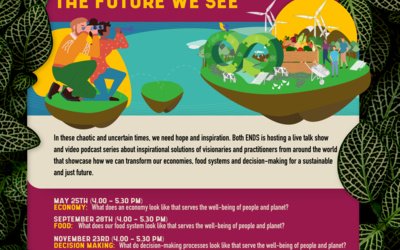
In these uncertain times of accumulating national, international and global crises, we need hope and inspiration more than ever. Fortunately, many hopeful ideas and initiatives are already existing that show that it is indeed possible to change the world - and especially the systems behind it - in a sustainable and fair way. What opportunities are to be found, what is hopeful, what is already happening and how can we, as the Netherlands, respond to this?
-
Publication / 31 December 2020
-
Publication / 12 November 2020
-
News / 2 April 2014
Saying NO! to free trade agreements
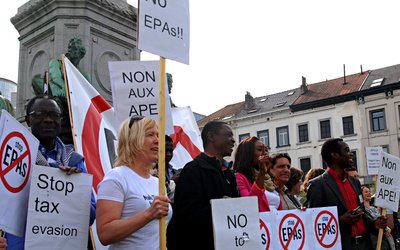
Today, on the 2nd of April, activists from Africa and Europe are staging a protest action in front of the European Parliament in Brussels to make the voices of the poor and marginalised citizens heard. Holding banners and chanting slogans to the beat of djembe drums, they asked the African and European governments to prioritise peoples’ rights and interest in their trade deals and particularly, in the EU trade and development policies with Africa. Why do they protest at this particular moment and what is Burghard Ilge of Both ENDS doing there?
-
Event / 25 May 2023, 16:00 - 17:30
The Future We See: economic systems
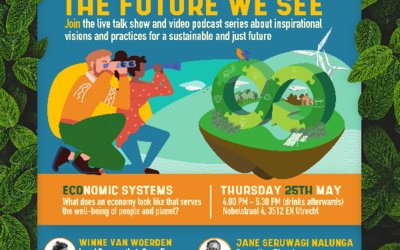
What does an economy look like that serves the well-being of people and the planet?
A wide range of great ideas about a transition to sustainable and just economic systems already exist, including ways to get there and examples that show that it is really possible. In this talkshow, we highlight some of these examples and hope to fuel the dialogue about this topic.
Inspired? Join our 'The Future We See' - talkshow on May 25th! You can either attend live or online, quietly listen or actively participate in the discussion. We hope to see you there!
Get your free tickets for the liveshow (limited!) or to join online here!
-
Blog / 14 April 2020
Stop WTO talks until everyone can take full part in them again
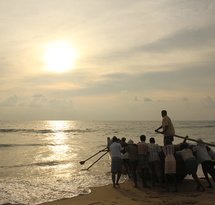 By Burghard Ilge and Daniëlle Hirsch
By Burghard Ilge and Daniëlle HirschThe World Trade Organization (WTO) is often seen as an institution in crisis, powerless and no longer relevant, and especially after US president Donald Trump decided in 2019 to pull the plug on one of the WTO’s most important bodies (the one dealing with trade disputes). Now, more than 150 civil society organisations, networks and interest groups from around the world have signed an urgent letter to WTO Director General Roberto Azevedo, because they are seriously concerned about the state of affairs within the organization.
-
News / 18 June 2019
Open letter from more than 340 organisations: EU must stop negotiating treaty with South American countries.
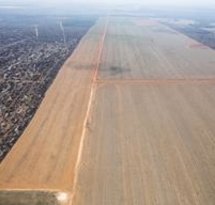
Today, more than 340 organisations from both South America and Europe, including Both ENDS, have sent a joint open letter to European Union leaders calling for the EU to cease negotiations on the EU-Mercosur Free Trade Agreement. The organisations and their constituencies are seriously concerned about increasing violations of indigenous human rights and damage to nature and the environment in Brazil.
-
News / 11 October 2019
Rights for people, rules for corporations: the case of Paraguay
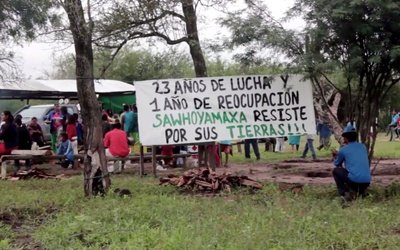
Indigenous communities in Paraguay saw their attempts to regain their ancestral lands thwarted by German investors. This is the level of impact that investment treaties can have on social, environmental and economic development and rights. Why? Because of the ‘Investor-to-State Dispute Settlement’ (ISDS) clauses that are included in many such treaties.
-
Press release / 29 June 2020
Press release – Call by 265 organisations to the EU: “Do not sign the EU-Mercosur trade agreement”
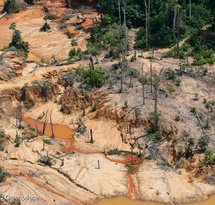
Germany must use its influence as president of the EU in the second half of this year to ensure that the controversial EU-Mercosur free trade agreement is not signed. This is the message in a letter presented to German chancellor Angela Merkel today by 265 civil society and environmental organisations from the EU and Mercosur countries. The deal between the EU and Argentina, Brazil, Uruguay and Paraguay will stimulate destruction of the natural environment and the violation of human rights in vulnerable areas in South America. The agreement will also give European farmers an unfair competitive advantage. Dutch signatories to the letter include Greenpeace and Both ENDS and various organisations united in the Handel Anders! coalition.
-
News / 11 October 2019
Rights for people, rules for corporations: the case of Indonesia
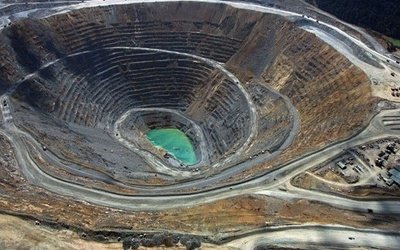
In Indonesia, US-based mining companies succeeded to roll back new laws that were meant to boost the country’s economic development and protect its forests. This is the level of impact that investment treaties can have on social, environmental and economic development and rights. Why? Because of the ‘Investor-to-State Dispute Settlement’ (ISDS) clauses that are included in many such treaties.
-
Dossier
Fair Green and Global Alliance (FGG)
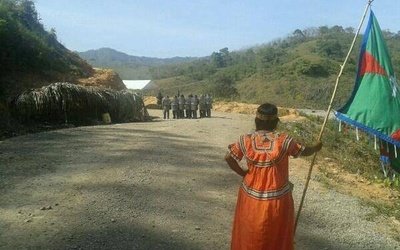
Together with civil society organisations from all over the world, the Fair Green and Global (FGG) Alliance aims for socially just, inclusive and environmentally sustainable societies in the Netherlands and the Global South.
-
News / 14 October 2016
5 alternative arguments against TTIP
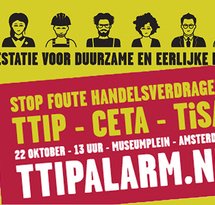
Both ENDS will join the protest against trade treaties TTIP, CETA and TiSA on Saturday October 22nd in Amsterdam. These treaties will have negative impacts, not only in the Netherlands and Europe, but also - and maybe even more so - in developing countries.
-
News / 14 March 2021
Vote for the Climate!
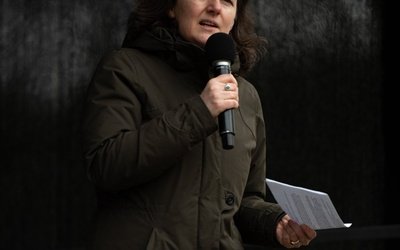
A number of our colleagues at Both ENDS made a lot of noise at various locations around the country today, as part of the national Klimaatalarm (Climate Alarm) campaign. Annelieke Douma gave a short speech in Haarlem on the major role played by the Netherlands in climate change and environmental degradation beyond our borders. She made a number of suggestions that would immediately make Dutch foreign policy a lot more climate-friendly. Below is the text of her speech.
-
Publication / 4 November 2009
-
Publication / 29 November 2021
-
Event / 7 December 2021, 14:00 - 15:15
WEBINAR: EU's push for strong Intellectual Property Rights (IPR) on seeds
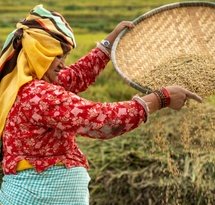
The European Union's (EU) foreign trade policy has many implications for the sustainability of food systems in developing countries, heavily impacting farmers, breeders, and citizens. The unhidden promotion by the EU of strong intellectual property rights on plants affects food systems from its very basis, i.e., the seeds that are available for farmers to grow. Amongst these intellectual property rights, the main instrument that is advocated by European authorities is the 1991 Act of the UPOV Convention, which provides exclusive rights to breeders over the propagating material of new plant varieties, while diminishing the rights of others to use the material for further breeding and hampering with the rights of farmers to freely save, use, exchange and sell their seeds.





